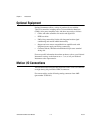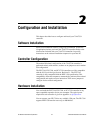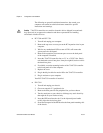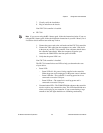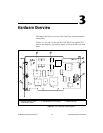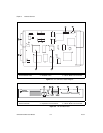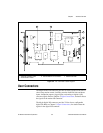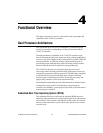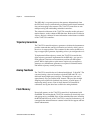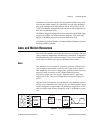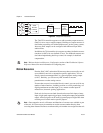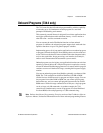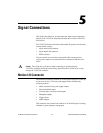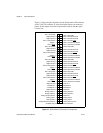
© National Instruments Corporation 4-1 7344/7334 Hardware User Manual
4
Functional Overview
This chapter presents an overview of the motion control algorithms and
capabilities of the 7344/7334 controller.
Dual Processor Architecture
You can perform up to four axes of simultaneous, coordinated motion
control in a preemptive, multitasking, real-time environment with the
7344/7334 controller.
The high-performance capabilities of the 7344/7334 controller result
from an advanced dual-processor architecture using a Motorola MC68331
real-time 32-bit CPU combined with an Analog Devices ADSP 2185 DSP
and custom FPGAs. Its FIFO bus interface and powerful function set
provide high-speed communications while off-loading complex motion
functions from the host PC for optimized system performance.
The 7344/7334 controller uses the digital signal processor for all
closed-loop control including position tracking, PID control closed-loop
computation, and motion trajectory generation. The DSP chip is supported
by custom FPGAs that perform the high-speed encoder interfacing,
position capture and breakpoint functions, motion I/O processing, and
stepper pulse generation for hard real-time functionality.
The embedded, multitasking real-time CPU handles host communications,
command processing, multi-axis interpolation, onboard program
execution, error handling, general-purpose digital I/O, and overall motion
system integration functions.
Embedded Real-Time Operating System (RTOS)
The embedded firmware is based upon an embedded RTOS kernel for
optimum system performancein varying motion applications. Motion tasks
are prioritized. Task execution order depends on the priority of each task,
the state of the entire motion system, I/O or other system events, and the
real-time clock.



